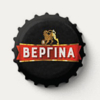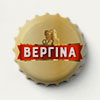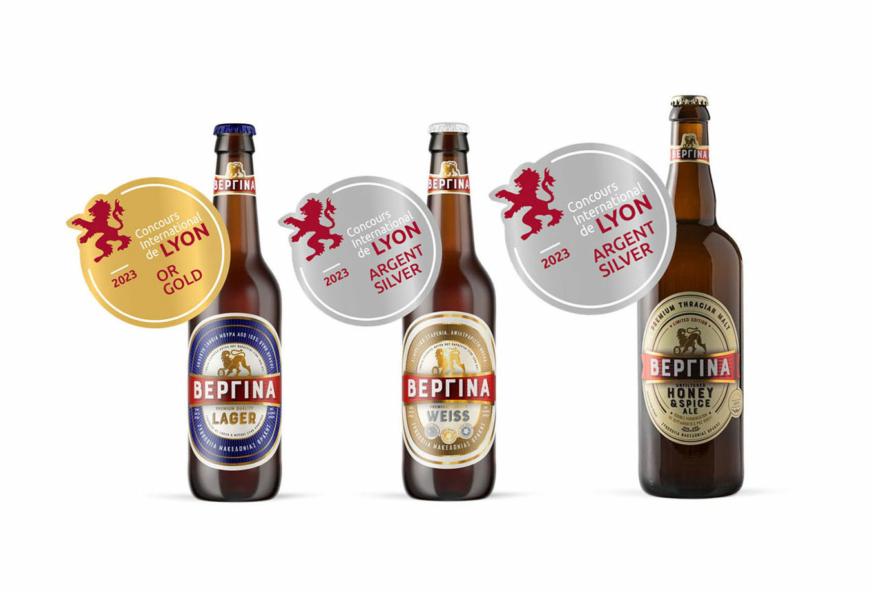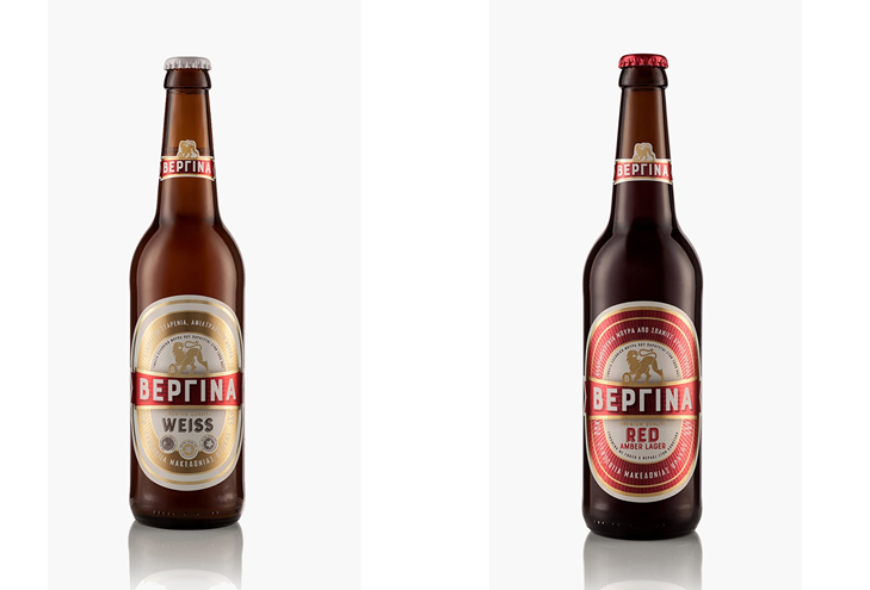What’s Broken in Greece? Ask an Entrepreneur (29/01/2011)
Demetri Politopoulos says he has suffered countless indignities in his 12-year battle to build a microbrewery and wrest a sliver of the Greek beer market from the Dutch colossus, Heineken.
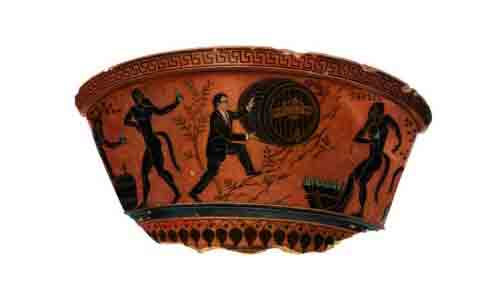
His tires have been slashed and his products vandalized by unknown parties, he says, and his brewery has received threatening phone calls. And he says he has had to endure regular taunts — you left Manhattan to start up a beer factory in northern Greece? — not to mention the pain of losing 5.3 million euros.
Bad as all that has been, nothing prepared him for this reality: He would be breaking the law if he tried to fulfill his latest — and, he thinks, greatest — entrepreneurial dream. It is to have his brewery produce and export bottles of a Snapple-like beverage made from herbal tea, which he is cultivating in the mountains that surround this lush pocket of the country.
An obscure edict requires that brewers in Greece produce beer — and nothing else. Mr. Politopoulos has spent the better part of the last year trying fruitlessly to persuade the Greek government to strike it. “It’s probably a law that goes back to King Otto,” said Mr. Politopoulos with a grim chuckle, referring to the Bavarian-born king of Greece who introduced beer to the country around 1850.

Sitting in his office, Mr. Politopoulos took a long pull from a glass of his premium Vergina wheat beer and said it was absurd that he had to lobby Greek politicians to repeal a 19th-century law so that he could deliver the exports that Greece urgently needed. And, he said, his predicament was even worse than that: it was emblematic of the web of restrictions, monopolies and other distortions that have made many Greek companies uncompetitive, and pushed the country close to bankruptcy.
“Why do you think no one is willing to invest in Greece?“ he asked. Greek leaders say they welcome business, he said, adding: “Yes, they are trying — but they have to back it up.”
For decades, Greece has been a wonderful place to be a lawyer, a pharmacist, an architect, a university president or even a truck driver— all occupations protected by an array of laws that have shielded them from local and foreign competitors. Greek pharmacists are guaranteed a minimum profit on their sales and charge some of the highest prices in Europe. And because they have fixed minimum fees, the 40,000 or so lawyers in Greece receive more for their time than their peers in many other European countries.
It has been very profitable to be a brewer in Greece, too — if you control 72 percent of the beer market, as Heineken now does.
The Greek economy is riddled with distortions — the number of trucking licenses has remained unchanged in Greece since 1971, for example, and the country is among the world’s leaders in lawyers per capita. It has one lawyer for every 250 people, compared with about one for 272 in the United States.
The effect on Greek competitiveness could not be more pernicious.
The cost of labor in Greece from 2005 to 2010 has been, on average, 25 percent higher than in Germany, according to a recent analysis by Variant Perception, a research firm based in London. (Ireland, Portugal and Spain also have relatively high labor costs.) Quite simply, Greece has had trouble producing goods and services that people want to buy — a result being a persistently high trade deficit that even now, amid the deepest of recessions, has hardly budged.
This pricing distortion helps explain why Greece required a 110 billion euro ($150 billion) bailout last spring in order to keep it from defaulting on its debts. The problem kick-started the financial crisis that is still shaking the euro zone. Seeking to restore competitiveness, Greece, because it is in the euro, cannot devalue its currency and, like other nations on the zone’s periphery, has instead had to impose what economists call an “internal devaluation.”
Instead, the difference in labor costs between countries like Greece and Germany is to be closed by sharply reducing public-sector wages — a move that is a hallmark of the Greek government’s reform effort. But improving competitiveness by cutting salaries is not only politically painful, it is also time-consuming.
The International Monetary Fund and the Greek government agree that lasting progress can be made only by instituting reforms that would make it easier for Greek companies to produce export-quality goods. Such measures include cutting taxes, easing the path for companies to win investment permits and — as entrepreneurs like Mr. Politopoulos hope — scrapping outdated laws that restrict business production.
George P. Zanias, the top economic adviser to Greece’s finance minister, George Papaconstantinou, said: “Historically, the supply side of the economy has been neglected — it was just a question of increasing demand. Vested interests built up and economic distortions increased.”
Companies in Greece had grown fat and lazy by selling their products in a protected local economy that was forever stimulated by government deficit spending, Mr. Zanias said. Over the years, Greek companies felt little need to emphasize exports, and the country became one of Europe’s most closed economies, with exports accounting for just 20 percent of economic output — about half the average for the euro zone.
Now, with the hard-pressed government unable to borrow and spend as deficits shrink, companies are obliged to sell their wares abroad — if they can.
Mr. Zanias points to the positive, like a 40 percent surge in exports in November. He also notes that a law has been passed to speed along large-scale foreign investment projects, and that the Greek cabinet has approved legislation to open the closed professions to competition and thus force them to lower their prices. But the economist in him is mindful of the long-term damage already done to the capitalist initiative here. “Greece has never been an easy place to do business,” he conceded with a sigh.
None of which is news to Mr. Politopoulos.
ALONG with his older brother and business partner, Michael, Mr. Politopoulos came to the United States in the early 1980s to get an education — and, perhaps, to make his fortune.
He received a degree in chemical engineering and business at the Stevens Institute of Technology in Hoboken, while Michael went to Columbia. The older brother set up and still runs a specialty chemicals business in North Bergen, N.J., while Mr. Politopoulos says he embraced a young man’s life, working hard for his brother and playing equally hard off-hours in Manhattan.
In 1995 he persuaded his brother and father — an independent businessman who owns a Best Western hotel in Athens — to stake his conviction that Greece “would be an excellent spot to start up a brewery.”
“Frank Zappa once said that if you want to be a nation you need to have an airline and a beer,” he said. “Well, we had an airline.”
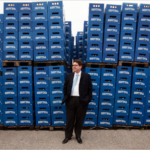
Not to mention the fun he would have.
“I have always loved beer,” he said. “We just figured that all we had to do is drink less beer than we sold.”
He stopped working for his brother, studied brewing in Chicago and bought a one-way ticket to Greece in 1995 — choosing an industrial park in Komotini, a midsize town a few hours’ drive from the Turkish border, as the site for his factory.
Mr. Politopoulos, 47, is a bachelor, and at times he acts like an aging frat boy on spring break, as when, for example, he suggests a night of partying with college girls in Komotini. But there is no mistaking the intensity of his business drive and his commitment to make good on the 11.5 million euros his father and brother have invested in him.
“I would rather die than lose that money,” he said. In emerging economies from Brazil to Turkey, South Africa and Mexico, beer companies have spun extraordinary profits. Mr. Politopoulos hoped to replicate this pattern.
In Greece, however, Amstel created an early and dominant stronghold in 1963 via a local company called Athenian Brewery, establishing tight control of the country’s beer distribution channels. When Heineken acquired Amstel in 1968, Heineken took over this position, which, in effect, included a huge barrier to entry for anyone hoping to establish a local brewery.
By the time Mr. Politopoulos set up his company, called Macedonian Thrace Brewery, Heineken’s grip on the market — then close to 90 percent — was so all-encompassing that the green color of its signature bottle had become synonymous with beer. (Instead of ordering a Heineken in a cafe, people would often ask simply for a “green.”)
When Mr. Politopoulos first announced his plans, the response in Greece was often one of bemusement.
As he recalls it, he would say, “We are going to make a great local beer,” only to have prospective customers respond, “But Greece already has a beer — its called Heineken.”
“Well, yes, but ours will be called Vergina,” named for the town in Macedonia where Alexander the Great’s father was born. “It will taste great and be cheaper — give it a try!”
“But such a beer does not exist,” he says people would then reply, and he would have to start all over again.
“It was like the twilight zone,“ Mr. Politopoulos recalls with a shake of his head. (For the record, Vergina’s premium wheat beer is quite delicious — sharp and full in taste.) Heineken’s hold on the Greek beer drinker, however, is more than psychological. It is rooted in the profits that Athenian Brewery — 98 percent owned by Heineken International and run by a Dutchman — produce for the parent company.
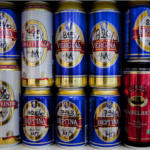
Mr. Politopoulos said: “This is not about money; it’s a matter of principle. There are laws — you cannot just kill the small guy because you are big and powerful. We make a good beer and we just want the consumer to be the judge, and not our competitors.”
He adds that politicians in Athens — both conservative and socialist — seem to understand that the old culture that allowed a dominance of such size and scope is no longer acceptable if Greece is to generate the type of growth it needs to eventually pay down its mountain of debt.
And he has no doubt that once the right people in Athens are made aware of King Otto’s law, as he calls it, it will be erased — allowing him to produce his bottles of Greek mountain tea.
Evripidis Stylianidis, a former high-ranking minister in the New Democracy Party that lost out to the current socialist government of George Papandreou in 2009, said, “These types of monopolies are not healthy for Greece.”
Mr. Stylianidis hails from Komotini and has been one of Mr. Politopoulos’s staunchest political backers. He is also a student of a vast array of old laws that, he says, harm businesses in Greece. One favorite example: a decree that protects donkeys, giving them the right of way on Greek roads.
COMPARED with Turkey, Greece has had an extremely poor record in attracting direct foreign investment. And while a bill for putting big investments in Greece on the fast track is now law, there has been little sign that investors are responding in large numbers to this declaration from Athens that Greece is open for business.
Still, there has been some improvement lately, in the view of Achilles V. Constantakopoulos, a shipping industry scion. He is in the process of investing 1.5 billion euros in a series of high-end tourist resorts on the underdeveloped coastline of the southwest Peloponnese region. But this plan was first conceived a good 25 years ago by Mr. Constantakopoulos’s father and founder of the family fortune, Vasilis, who died last week. The plan has suffered numerous legal setbacks. Only recently did Mr. Constantakopoulos complete the first of four planned resorts, Navarino Dunes.
“There is a problem in Greece,” he said. “In order to do something it has to be provided for in law,” and that can take decades.
But he says he believes that things are changing — and that he expects that the fast-track law for large investments will benefit not only his family’s project, but others as well. “The laws that are in place encourage investment,” he said in his office in Athens, as he nibbled from a plate of figs and nuts. “These days it is easier to get things done.”
Nonetheless, the grinding work of scrapping old laws and creating an open, commercial climate that attracts foreign investors cannot be completed overnight.
And the clock is ticking.
If current trends continue, by the time the I.M.F. rescue program runs its course in 2013, Greece will be burdened with a debt-to-G.D.P. ratio of close to 160 percent (second in the world, after Japan) — and a requirement to keep its deficit at just 3 percent of G.D.P.
Without a major restructuring of its debts, Greece can reduce this ratio rapidly only if the economy grows at a rate approaching the 4 percent it averaged before the crisis hit in 2008. Absent government pump-priming, though, Greece must rely on its moribund private sector.
Can Greece reinvent itself and become globally competitive?
The question goes to the heart of the euro’s future. Beyond the drama of debts and deficits, Greece’s growth prospects are indeed dim if it cannot offer high-quality, competitively priced goods and services. Much the same is true for Ireland, Portugal, Spain and even Italy.
In a recent report, Bank of America Merrill Lynch projects that Greece’s growth rate over the next five years will average 1 percent — a rate that could force the country to stop paying a portion of its debt.
In the meantime, the struggles of the Politopouloses continue. Sitting in an outdoor cafe on a rainy weekday afternoon in Athens earlier this month, Michael Politopoulos, the elder brother, considers the losses the family has absorbed because of the many years it took to bring Vergina to the market — to say nothing of the heartburn they have all endured.
Sipping from a glass of Chivas Regal — predictably, the establishment does not stock Vergina — he says he once considered giving up on the business entirely. Now, with visions of millions of bottles of green mountain tea dancing before him, he is ready to double-down in Greece — as soon as King Otto’s law is reversed, that is.
“The ills of the past are crumbling,” he continued.
“Greece has no choice but to rebuild — and the only way to do it is to roll up our sleeves and start over.”

By LANDON THOMAS Jr. JAN. 29, 2011
SOURCE nytimes.com
New York Times
«Το πρόβλημα της Ελλάδας; Ρωτήστε έναν επιχειρηματία»
ΔΗΜΟΣΙΕΥΣΗ: 31/01/2011 21:18
Τις απίστευτες (για τους ξένους) περιπέτειες το έλληνα επιχειρηματία Δημήτρη Πολιτόπουλου διεκτραγωδεί η εφημερίδα New York Times σε σημερινό πρωτοσέλιδο δημοσίευμά της με τίτλο «Το πρόβλημα της Ελλάδας; Ρωτήστε έναν επιχειρηματία». Ο κ. Πολιτόπουλος, ιδιοκτήτης της ζυθοποιίας Βεργίνα, αναφέρεται διεξοδικά στον πόλεμο που έχει δεχθεί επί 12 ολόκληρα χρόνια από τον ολλανδικό κολοσσό Heineken, ο οποίος έχει οιονεί μονοπωλιακή θέση στην ελληνική αγορά ζύθου.
Σημειώνει ότι όταν επιχείρησε να δημιουργήσει τη Βεργίνα η Heineken κατείχε ποσοστό 90% στην ελληνική αγορά μπίρας (τώρα το ποσοστό της έπεσε στο 72% και, όπως αναφέρουν οι ΝΥΤ, είναι το δεύτερο μεγαλύτερο στον κόσμο μετά το 99% που κατέχει στην αγορά της Αιγύπτου, γεγονός που δίνει στην εταιρεία τη δυνατότητα να επιβάλλει στην ελληνική αγορά τιμές κατά 30% υψηλότερες από τις τιμές στην ολλανδική).
Αλλωστε, οι πωλήσεις της Heineken στην ελληνική αγορά συνεισφέρουν κατά το 7,1% στο σύνολο των λειτουργικών κερδών του ομίλου, γράφουν οι ΝΥΤ.
Εν πάση περιπτώσει, ο κ. Πολιτόπουλος αναφέρει ότι τα προβλήματα που αντιμετώπισε κατά την εμπλοκή του στον ελληνικό κλάδο ζύθου ξεκίνησαν από τη διακίνηση του προϊόντος του (δεν έβρισκε διανομείς) και κατέληξαν στο… σκάσιμο των ελαστικών του προσωπικού αυτοκινήτου του και σε απειλητικά τηλεφωνήματα στην επιχείρησή του, όταν, το 2006, διαμαρτυρήθηκε με επιστολή του στην Ευρωπαϊκή Ενωση για την κατάσταση που επικρατεί στην ελληνική αγορά μπίρας.
«Ενα δαιδαλώδες νομικό καθεστώς επιτρέπει τη δημιουργία μονοπωλιακών συνθηκών σε πολλούς επιχειρηματικούς κλάδους, όπως επιτρέπει τη δημιουργία επαγγελματικών διακρίσεων»,
γράφει η αμερικανική εφημερίδα αναφερόμενη και στα λεγόμενα «κλειστά» επαγγέλματα του δικηγόρου, του συμβολαιογράφου, του φαρμακοποιού, «ακόμη και του οδηγού φορτηγού αυτοκινήτου». Και όλα αυτά «πλήττουν τον ανταγωνισμό σε μια χώρα που τόσο απελπισμένα προσπαθεί να γίνει ανταγωνιστική», σημειώνουν η ΝΥΤ και η ευρωπαϊκή της έκδοση International Herald Tribune.
ΠΗΓΗ tovima.gr





